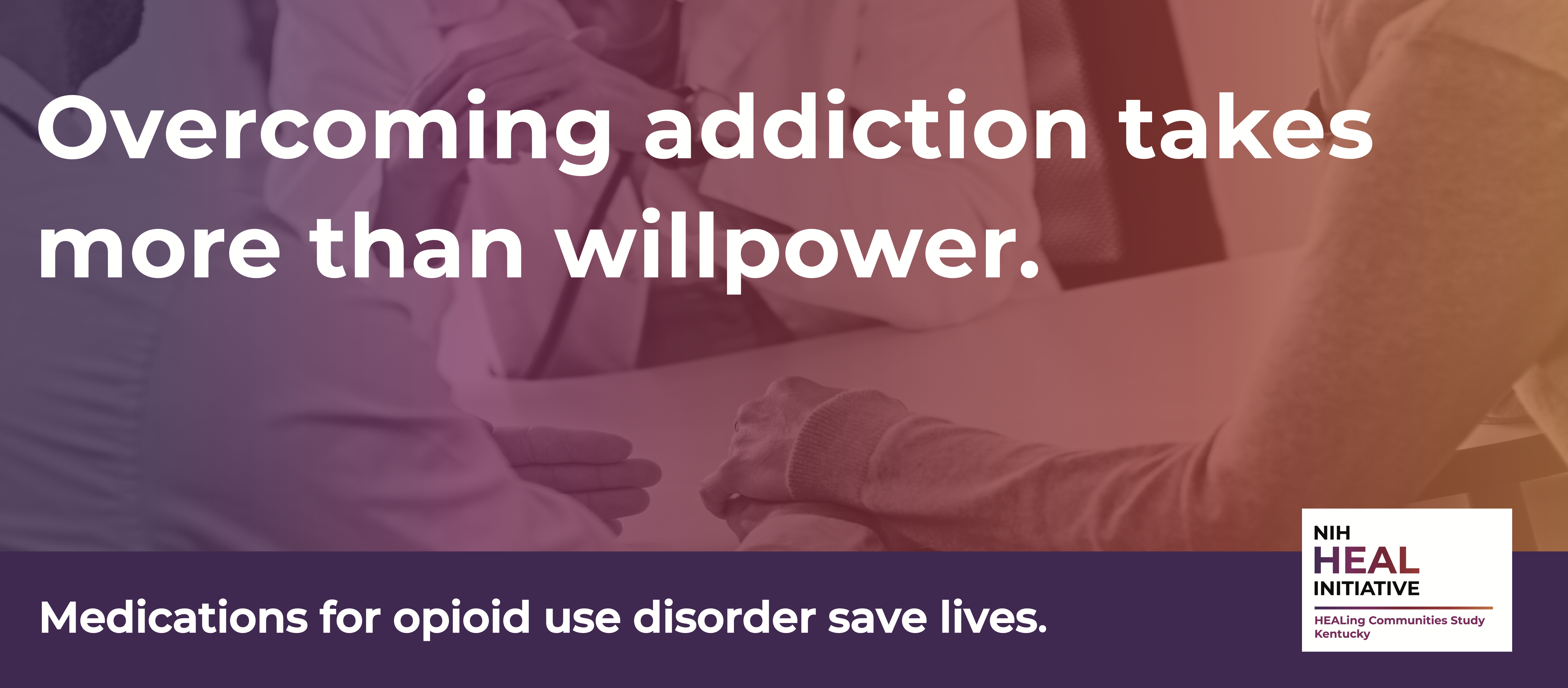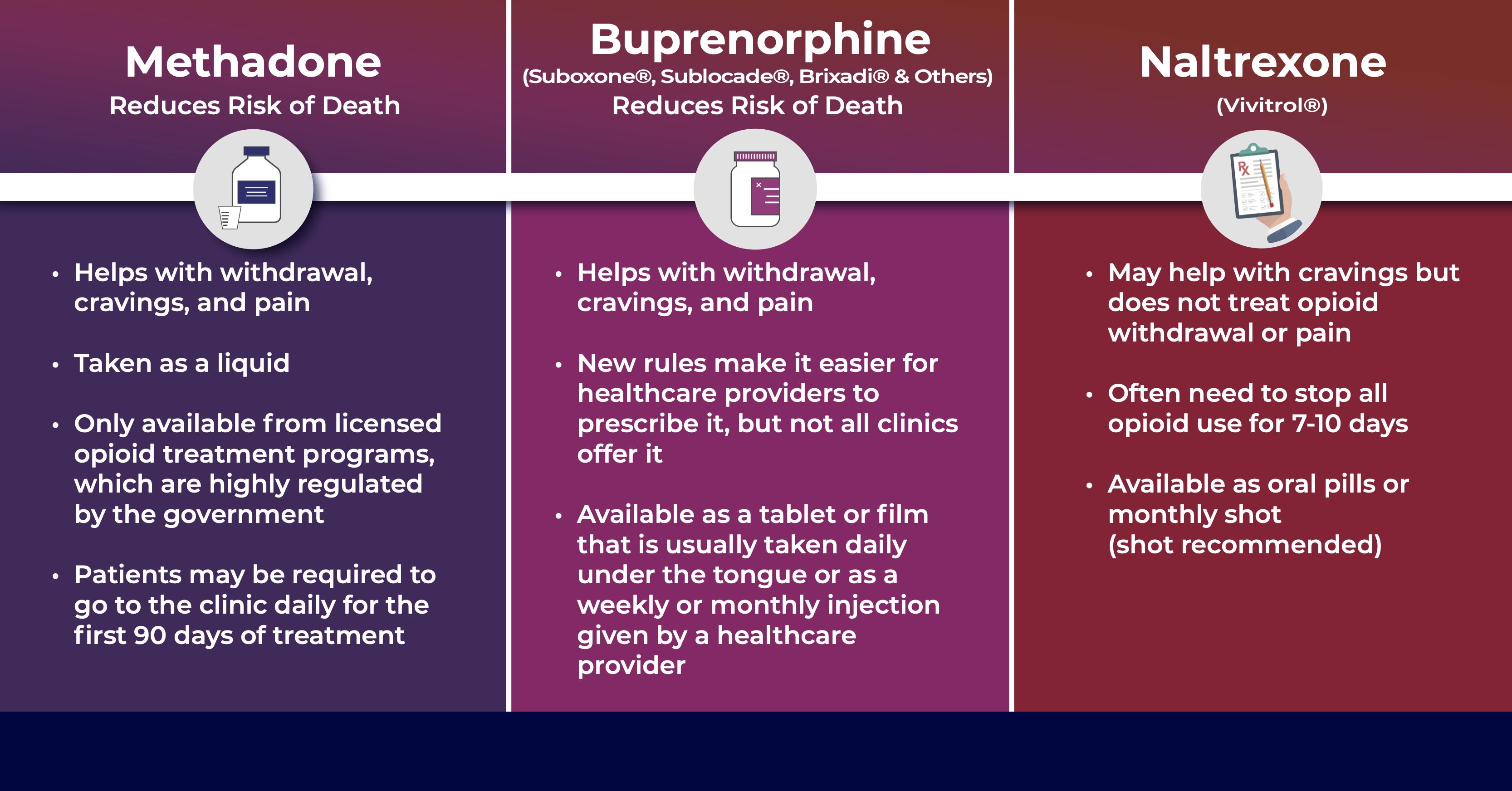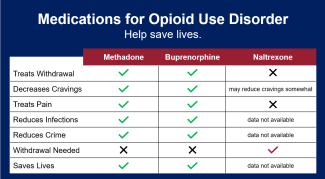The initial decision to take drugs is voluntary for most people, but repeated drug use changes many important networks in the brain involved in things like learning, motivation, reward, memory, mood, pleasure, and stress response. Repeated drug use causes changes in parts of the brain that are not under voluntary control. People can start to feel very sick physically and mentally when they go without the drug, can start to think more about drug use (even if they don't want to), and struggle with many aspects of life.
Medications like buprenorphine (e.g. Suboxone®) and methadone are helpful for the brain and body because they help stop repeated cycles of intoxication and withdrawal, greatly decrease cravings, and protect a person from fatal overdose if there is a return to use.
People starting treatment with medication for OUD may decrease or stop opioid use quickly or it can take time, and sometimes people return to use after starting treatment. Returning to use or taking time to slow or stop use does not mean that the medication is not working. As with other chronic health conditions, medication for OUD should be ongoing as long as the person needs it and should be adjusted based on how the person responds.


